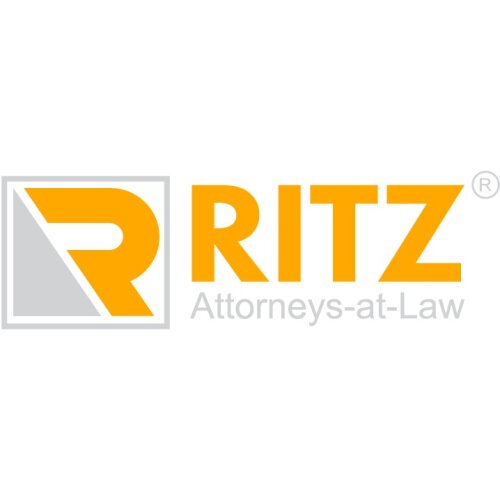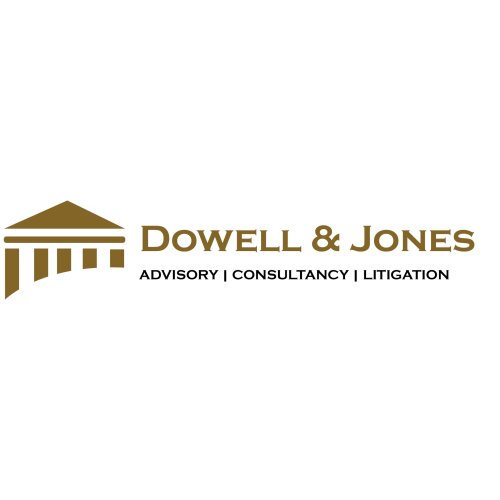Best Due Diligence Lawyers in Malawi
Share your needs with us, get contacted by law firms.
Free. Takes 2 min.
Or refine your search by selecting a city:
List of the best lawyers in Malawi
About Due Diligence Law in Malawi
Due Diligence in Malawi primarily involves the careful investigation or audit of a potential investment, business partner, or property before entering into an agreement or transaction. This practice is crucial for identifying any potential risks and ensuring that all information regarding the transaction is accurate and complete. In Malawi, due diligence plays a key role in business transactions and real estate deals, ensuring compliance with local laws and regulations, and preventing fraud.
Why You May Need a Lawyer
Engaging a lawyer for due diligence in Malawi can be essential in several scenarios. Whether you are investing in a new business, acquiring property, or entering into a complex commercial contract, a lawyer can help by:
- Conducting thorough inspections and reviews of legal documents.
- Providing guidance on compliance with local laws and regulations.
- Identifying potential legal risks and liabilities associated with the transaction.
- Negotiating terms and conditions to protect your interests.
- Offering insights into the legal landscape of Malawi to help make informed decisions.
Local Laws Overview
The key aspects of local laws relevant to due diligence in Malawi include:
- Business Registration and Compliance: Companies must comply with the Companies Act and be properly registered with the Registrar of Companies.
- Land and Property Laws: Real estate transactions must comply with the Land Act and the physical inspection of title deeds and land documents is vital.
- Taxation: Understanding and complying with the tax obligations under the Malawi Revenue Authority is crucial during financial transactions.
- Contracts and Agreements: The enforceability of contracts is governed under the Contracts Act, making legal scrutiny of all terms necessary.
- Foreign Investment: Foreign investors must navigate the Investment and Export Promotion Act.
Frequently Asked Questions
What is the primary purpose of due diligence?
The primary purpose of due diligence is to assess risks and confirm all relevant information before entering into a financial or legal agreement to protect oneself from future liabilities.
Is due diligence legally required in Malawi?
While not explicitly mandatory by law, due diligence is a best practice highly recommended for major transactions to ensure compliance with legal requirements and prevent future disputes.
Can a non-lawyer conduct due diligence?
While non-lawyers can conduct initial due diligence, it is recommended to involve a lawyer for thorough legal review and guidance, particularly in complex transactions.
What should I expect during a due diligence process?
A comprehensive review of financial records, legal documents, contracts, operational practices, and compliance with local laws, often requiring cooperation between the parties involved.
How long does due diligence usually take in Malawi?
The duration varies depending on the complexity of the transaction, but typically, it can take several weeks to months, with rigorous legal and financial assessments involved.
What potential risks can due diligence uncover?
Due diligence can uncover financial irregularities, legal liabilities, non-compliance with local regulations, flawed business or operational practices, and other potential risks that could impact the transaction.
How important is local law compliance in due diligence?
Extremely important, as non-compliance can result in legal repercussions, financial penalties, or voiding of transactions. Compliance ensures the transaction is legally sound.
Can due diligence help in negotiating better terms?
Yes, identifying risks or shortcomings during due diligence can provide leverage for renegotiating terms to align with the client’s interests and mitigate potential liabilities.
What are some common challenges in conducting due diligence in Malawi?
Challenges often include obtaining accurate and complete documents, navigating local legal frameworks, and assessing operational and financial integrity comprehensively.
How are international transactions impacted by local due diligence requirements?
International transactions necessitate compliance with both local and international laws, making local due diligence a critical component of ensuring legality and smooth execution.
Additional Resources
For further assistance and information on due diligence, consider reaching out to:
- The Law Society of Malawi for a list of licensed legal practitioners.
- The Malawi Investment and Trade Centre for guidance on investment-related regulations.
- The Office of the Registrar General for business registration and compliance information.
- Malawi Revenue Authority for tax compliance queries.
Next Steps
If you need legal assistance in due diligence, consider the following steps:
- Identify your specific needs and context of the transaction.
- Consult with a qualified lawyer with expertise in Malawian law and practical experience in due diligence.
- Prepare all necessary documentation and information for the legal review.
- Work closely with your lawyer to ensure a thorough and comprehensive due diligence process.
- Use legal findings to guide your decision-making and negotiations.
Lawzana helps you find the best lawyers and law firms in Malawi through a curated and pre-screened list of qualified legal professionals. Our platform offers rankings and detailed profiles of attorneys and law firms, allowing you to compare based on practice areas, including Due Diligence, experience, and client feedback.
Each profile includes a description of the firm's areas of practice, client reviews, team members and partners, year of establishment, spoken languages, office locations, contact information, social media presence, and any published articles or resources. Most firms on our platform speak English and are experienced in both local and international legal matters.
Get a quote from top-rated law firms in Malawi — quickly, securely, and without unnecessary hassle.
Disclaimer:
The information provided on this page is for general informational purposes only and does not constitute legal advice. While we strive to ensure the accuracy and relevance of the content, legal information may change over time, and interpretations of the law can vary. You should always consult with a qualified legal professional for advice specific to your situation.
We disclaim all liability for actions taken or not taken based on the content of this page. If you believe any information is incorrect or outdated, please contact us, and we will review and update it where appropriate.
Browse due diligence law firms by city in Malawi
Refine your search by selecting a city.
















